If you constantly feel bloated, tired, achy, or just “off,” chronic inflammation could be to blame. Unlike the temporary inflammation that helps your body heal from a cut or cold, chronic inflammation simmers under the surface—and it’s linked to everything from weight gain and joint pain to serious conditions like heart disease, diabetes, and autoimmune disorders. And one of the biggest drivers of chronic inflammation? The food you eat every day.
Modern diets are packed with ingredients that actively fuel inflammation. Think refined carbs, sugary drinks, processed meats, and artificial additives. While they may taste good or offer short-term convenience, these foods quietly wear down your body over time. But here’s the good news: food can also be your most powerful defense. By making simple swaps, you can begin to calm inflammation, repair damaged cells, and feel more energized—without going on a restrictive diet.
This guide breaks down 12 common foods known to worsen inflammation and offers 12 delicious, anti-inflammatory alternatives to replace them with. From colorful berries and leafy greens to rich olive oil and wild-caught salmon, these swaps don’t just fight inflammation—they also support better digestion, clearer skin, sharper thinking, and longer-term vitality.
Whether you’re managing a chronic condition or just want to feel your best every day, understanding how food impacts inflammation is a game-changer. You don’t need to overhaul your entire lifestyle overnight. Start small, make intentional choices, and let your plate become a tool for healing. Let’s take a closer look at what to ditch—and what to embrace—to help your body thrive from the inside out.
1. Sugar and High-Fructose Corn Syrup
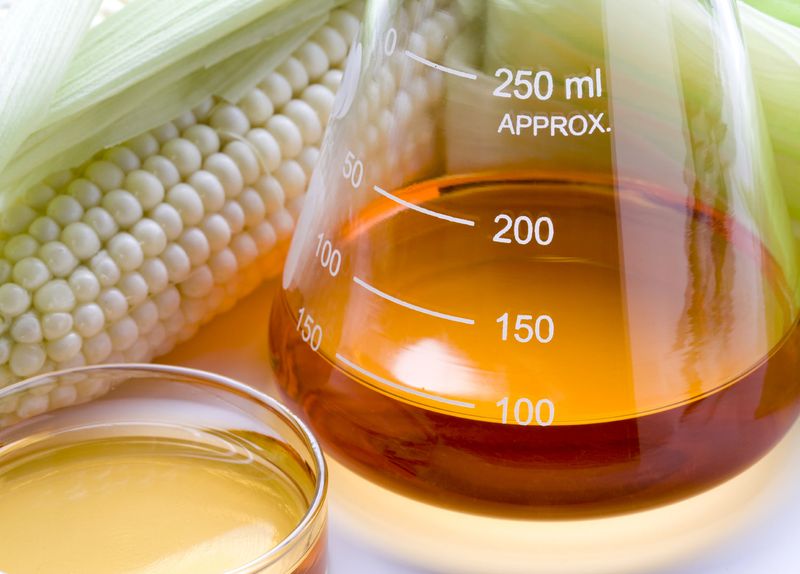
Sugary treats might be tempting, but they can wreak havoc on your health. These sweeteners promote insulin resistance and can increase inflammatory markers throughout your body. Consuming sugary foods and drinks may lead to weight gain and contribute to the risk of developing type 2 diabetes and heart disease.
Instead of reaching for that soda can or candy bar, try indulging in a piece of fruit. The natural sugars found in fruits come with fiber, vitamins, and antioxidants. Swapping out processed sugars for natural sources can make a big difference in reducing inflammation.
2. Artificial Trans Fats

Often found in processed foods, artificial trans fats can be a hidden danger to your health. These industrial fats are known to trigger systemic inflammation and raise bad cholesterol levels. Consuming foods with trans fats can increase the risk of heart disease, stroke, and diabetes.
Look for foods that are labeled as ‘trans fat-free,’ and choose natural fats like butter or oils such as olive and coconut for cooking. By avoiding trans fats and opting for healthier alternatives, you can significantly reduce inflammation and improve your overall well-being.
3. Refined Carbohydrates
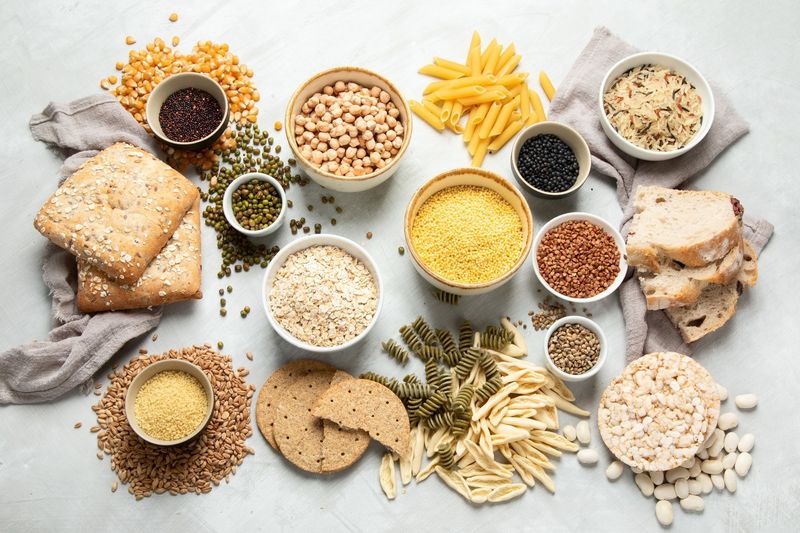
Refined carbohydrates, such as those found in white bread and pastries, can spike blood sugar levels and lead to inflammation. These foods are stripped of their beneficial fiber and nutrients, resulting in quick digestion and increases in insulin levels.
Instead of reaching for refined carbs, choose whole grains like brown rice, quinoa, or whole-grain bread. These alternatives provide essential nutrients and fiber, helping to maintain stable blood sugar levels and reduce inflammation. A simple switch from refined to whole grains can support long-term health benefits.
4. Processed Meat

Processed meats, such as bacon, sausages, and deli meats, are a savory delight but are linked to chronic inflammation and diseases. They contain high levels of preservatives and unhealthy fats, which can increase the risk of heart disease and cancer.
Consider swapping processed meats for lean proteins like chicken, turkey, or plant-based options like tofu and legumes. These alternatives offer a source of protein without the harmful additives, supporting a healthier lifestyle and reducing inflammation. Making mindful protein choices can have a significant impact on your well-being.
5. Excessive Alcohol

While a glass of wine might be a lovely indulgence, excessive alcohol consumption damages the gut lining and disrupts immune function. This leads to inflammatory flare-ups and increases the risk of liver disease and other health issues.
Moderate alcohol consumption, such as a glass of red wine, might offer some heart benefits due to its antioxidant content. However, it’s crucial to consume alcohol in moderation. If you find yourself drinking regularly, consider cutting back and hydrate with water or herbal teas to support your body’s natural inflammatory response.
6. Vegetable and Seed Oils
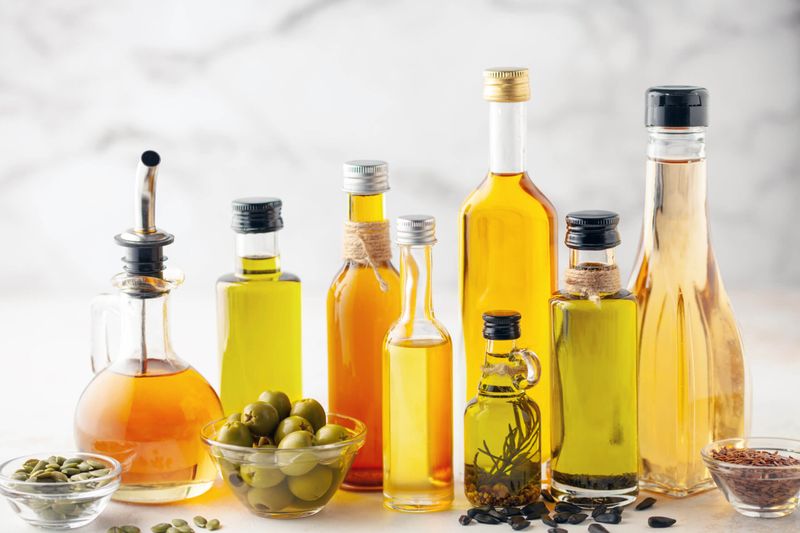
Certain vegetable and seed oils, like sunflower and corn oil, have a high omega-6 fatty acid content, which can fuel inflammation if not balanced with omega-3s. These oils are common in processed foods and can disrupt the body’s natural inflammatory balance.
Opt for oils rich in omega-3s, such as flaxseed or olive oil, which help combat inflammation. Using these alternative oils for cooking or dressings can contribute to a healthier diet and reduce inflammation. Balancing omega-6 and omega-3 intake is essential for maintaining overall health and well-being.
7. Fried Foods

While delicious, fried foods produce harmful compounds when cooked at high temperatures. These compounds can aggravate inflammation and increase the risk of chronic diseases. Consuming fried foods regularly can contribute to obesity, heart disease, and diabetes.
Instead of frying, try baking or grilling your favorite foods. These methods reduce the formation of harmful compounds and can still provide flavorful and satisfying meals. Making this simple change in cooking techniques can help decrease inflammation and improve overall health.
8. Artificial Sweeteners

Artificial sweeteners, often marketed as a healthy alternative to sugar, may negatively impact gut health, contributing to systemic inflammation. These sweeteners can alter the gut microbiota and lead to glucose intolerance.
Consider using natural sweeteners like honey or maple syrup, which offer a more balanced alternative without compromising taste. These options can provide sweetness without the potential negative effects on gut health. Choosing natural sweeteners can support digestive health and help reduce inflammation over time.
9. Dairy Products
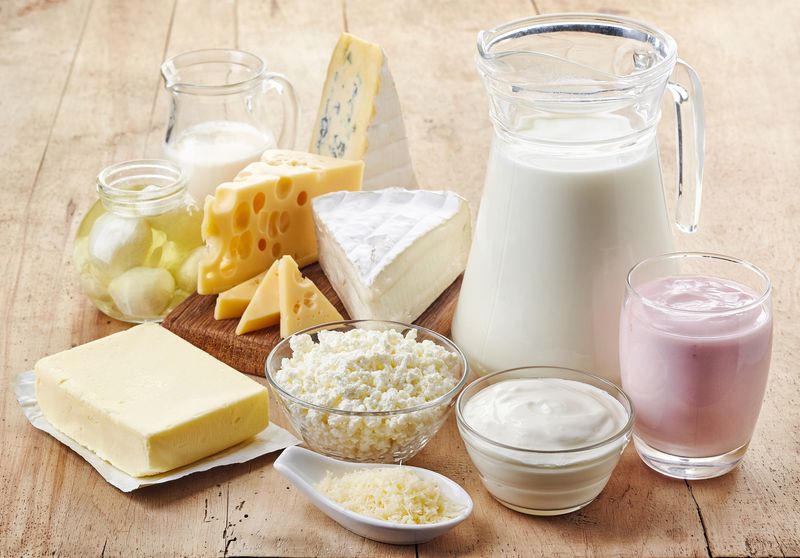
For some individuals, dairy products can trigger inflammation, especially those with sensitivities or lactose intolerance. Symptoms can include bloating, indigestion, and other discomforts, making it important to listen to your body.
If dairy causes issues, consider alternatives like almond, soy, or oat milk, which provide similar nutritional benefits without the inflammatory potential. These plant-based options can be a tasty and nutritious substitute, allowing you to enjoy your favorite recipes without discomfort. Tailoring your diet to fit your body’s needs can help manage inflammation effectively.
10. Gluten-Containing Grains
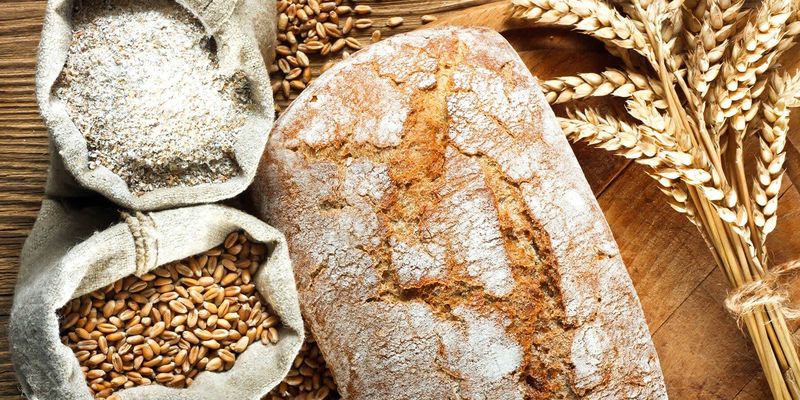
Gluten-containing grains, such as wheat, barley, and rye, can be problematic for those with sensitivities, provoking inflammation and digestive issues. Symptoms may include bloating, fatigue, and joint pain.
For those affected, gluten-free grains like quinoa, rice, and buckwheat offer nutritious alternatives without triggering inflammation. Incorporating these grains into your diet can provide the necessary nutrients while avoiding discomfort. Listening to your body’s response to gluten and making appropriate dietary changes can significantly impact your inflammatory health.
11. Processed Snack Foods

Processed snack foods often contain additives and refined ingredients that spike inflammation. These snacks are convenient but lack nutritional value, and excessive consumption can lead to weight gain and chronic health issues.
Swap processed snacks for whole food options like fresh fruits, nuts, and seeds. These alternatives provide essential nutrients and healthy fats, supporting a balanced diet and reducing inflammation. Being mindful of snack choices and opting for natural options can contribute to better health and lower inflammation levels.
12. Sugary Beverages

Sugary beverages, including sodas and sweet teas, are linked to elevated inflammatory markers in the blood. Regular consumption can lead to weight gain and increase the risk of developing type 2 diabetes and heart disease.
Instead, hydrate with water, herbal teas, or homemade fruit-infused drinks. These options provide hydration without the added sugars and can help maintain a healthy weight. Making a conscious effort to avoid sugary drinks and choose healthier beverages can significantly reduce inflammation and improve overall well-being.
13. Berries

Vibrant, flavorful, and rich in antioxidants, berries pack a serious punch when it comes to fighting inflammation. Blueberries, raspberries, and blackberries contain anthocyanins, powerful compounds that help neutralize free radicals and reduce oxidative stress, a key driver of chronic inflammatory conditions.
Incorporating berries into your diet regularly supports immune health and lowers risk factors for heart disease. Their natural sweetness makes them a smart swap for sugary treats. Add them to smoothies, oatmeal, or salads for a daily dose of anti-inflammatory benefits your body will thank you for.
14. Fatty Fish

Wild-caught salmon, sardines, and mackerel are top sources of omega-3 fatty acids, which are proven to reduce inflammation throughout the body. These healthy fats help regulate immune responses and combat the chronic inflammation tied to heart disease, arthritis, and autoimmune issues.
Eating fatty fish just twice a week can significantly lower inflammatory markers like CRP. Grilled, baked, or added to a grain bowl, they’re as versatile as they are nutritious. Choose sustainable options when possible for both environmental and health-conscious benefits—your joints, brain, and heart will appreciate it.
15. Broccoli
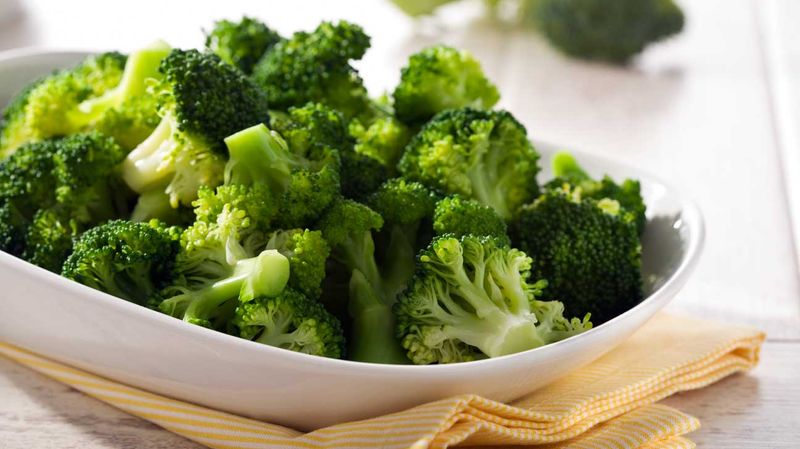
Don’t overlook this humble green—it’s one of the most powerful anti-inflammatory veggies out there. Broccoli contains sulforaphane, a sulfur-rich compound that inhibits key pathways linked to inflammation and may even reduce cancer risk.
Beyond sulforaphane, broccoli offers vitamin C, fiber, and antioxidants that strengthen your body’s defenses. Roasted, steamed, or raw, it works well in countless dishes. Regular consumption may help lower oxidative stress and support liver function. Including cruciferous vegetables like broccoli in your weekly meals is a delicious and simple step toward reducing chronic inflammation naturally.
16. Avocados
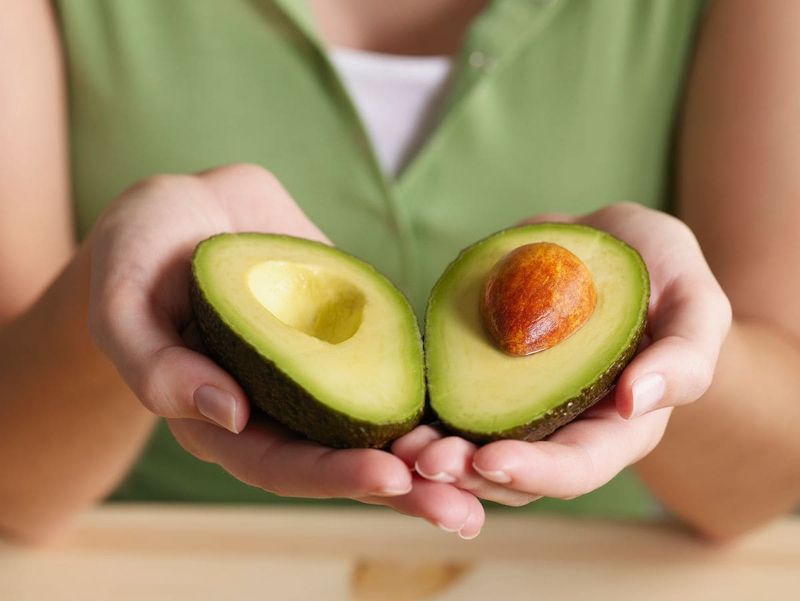
Creamy and nutrient-dense, avocados are packed with monounsaturated fats that soothe inflammation. These heart-healthy fats help lower levels of inflammatory markers like CRP, while their fiber and antioxidants promote gut health and cellular repair.
Rich in potassium, magnesium, and folate, avocados go beyond being trendy toast toppers. They’re a versatile food that pairs well with eggs, salads, smoothies, or eaten solo with a sprinkle of salt. Their subtle flavor masks their powerful nutritional impact, making them an ideal addition to any anti-inflammatory diet plan with effortless appeal.
17. Green Tea
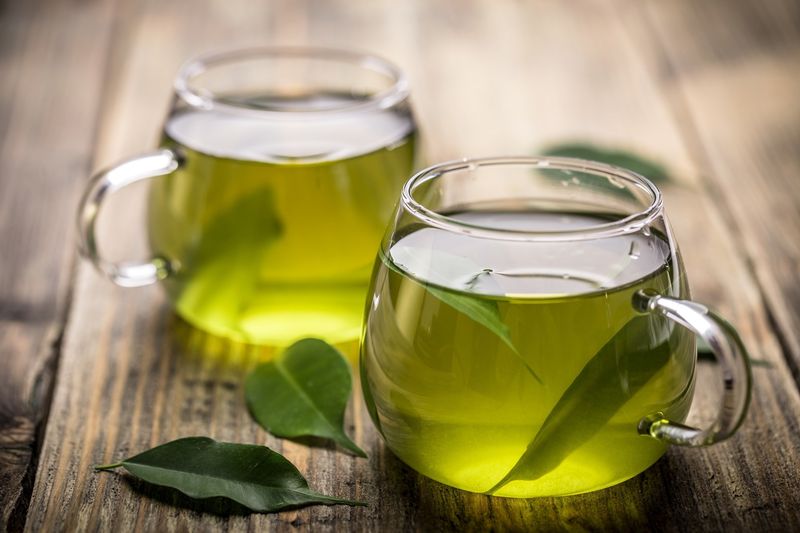
Centuries of tradition support what modern science now confirms—green tea fights inflammation effectively. Its star compound, EGCG (epigallocatechin gallate), inhibits key inflammatory pathways and offers neuroprotective and cardiovascular benefits.
Drinking two to three cups daily may help lower your risk of chronic diseases like diabetes and cancer. Its gentle caffeine content offers a mild energy boost without the jitters of coffee. Enjoy it hot or iced, plain or infused with lemon or mint, for a refreshing way to support long-term health and internal balance, one soothing sip at a time.
18. Turmeric
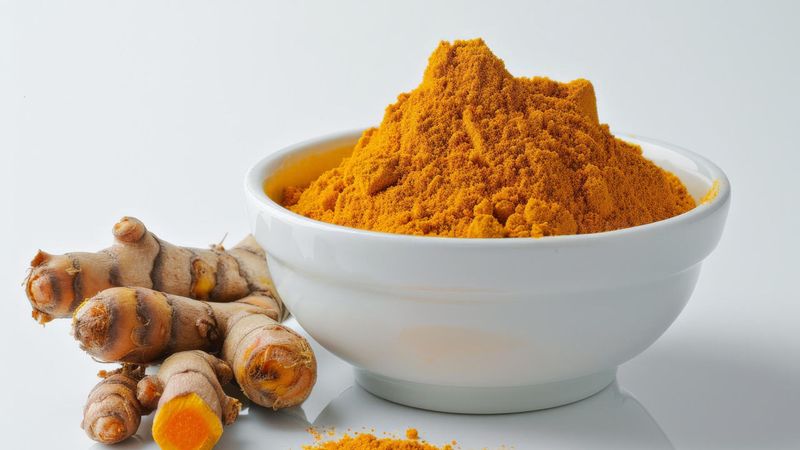
Golden-hued and aromatic, turmeric has long been a staple in traditional medicine for its anti-inflammatory prowess. Curcumin, its active ingredient, directly targets inflammation by blocking NF-κB, a molecule involved in many chronic conditions.
Adding turmeric to curries, stews, or golden milk can yield long-term benefits, especially when paired with black pepper to boost absorption. Turmeric supplements are also popular, but food-based sources provide steady, cumulative effects. Whether for arthritis, digestion, or immune support, this spice remains one of nature’s most potent inflammation-fighting allies across cultures and cuisines.
19. Extra Virgin Olive Oil
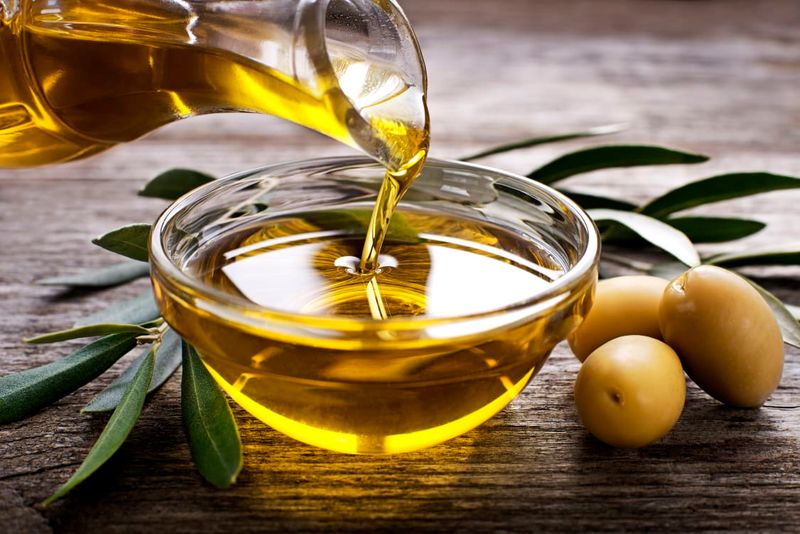
More than just a cooking staple, extra virgin olive oil acts as a natural anti-inflammatory agent. Its secret lies in oleocanthal, a phenolic compound shown to mimic the pain-relieving effects of ibuprofen—without the side effects.
Use it to dress salads, drizzle over vegetables, or as a dip for whole-grain bread. This heart-healthy oil is central to the Mediterranean diet, linked with lower rates of heart disease and cognitive decline. Make it your go-to oil in place of vegetable or seed oils to reduce inflammation and boost overall health effortlessly.
20. Dark Chocolate and Cocoa

Rich, indulgent, and surprisingly good for you—dark chocolate is a stealthy anti-inflammatory treat. It’s packed with flavonoids that neutralize free radicals and help calm inflammatory responses throughout the body, especially in the cardiovascular system.
Aim for chocolate with at least 70% cocoa content to maximize benefits and minimize added sugar. Small daily portions can help reduce stress hormones, support heart health, and even improve mood. Paired with berries, melted into oatmeal, or enjoyed solo, dark chocolate proves that not all sweets are created equal in your anti-inflammatory arsenal.
21. Tomatoes
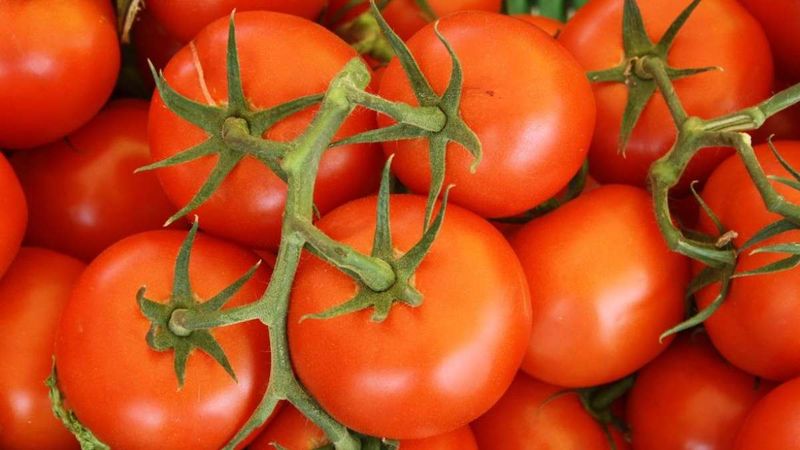
Bright, juicy, and versatile, tomatoes are a top source of lycopene, a potent antioxidant with strong anti-inflammatory properties. Cooking them actually increases lycopene availability, making sauces and soups even more beneficial.
Tomatoes are also rich in vitamin C and potassium, which support cardiovascular health and immune function. Whether sliced into salads, roasted in the oven, or simmered into marinara, they’re a smart, delicious addition to your diet. Especially powerful for reducing inflammation linked to heart disease, tomatoes offer both culinary and healing potential in every bite.
22. Cherries
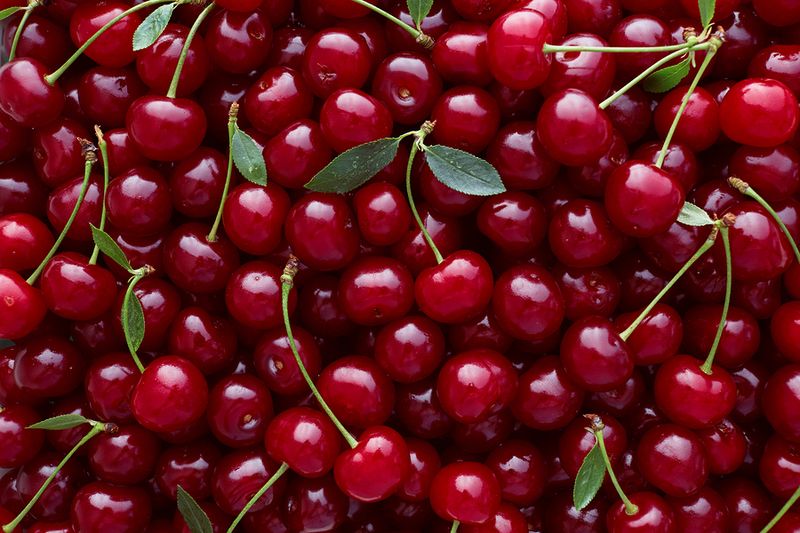
Cherries deliver more than a burst of tart-sweet flavor—they’re packed with inflammation-fighting compounds like anthocyanins and catechins. These antioxidants help reduce oxidative stress and support muscle recovery post-exercise.
Studies show cherries can help lower CRP levels, a key marker of inflammation. Add them fresh, frozen, or dried to oatmeal, yogurt, or baked goods. Tart cherry juice has also gained popularity among athletes for reducing soreness. Whether you’re active or simply looking to boost your diet, cherries offer both delicious taste and impressive anti-inflammatory support.
23. Leafy Greens

Leafy greens like spinach, kale, and Swiss chard are packed with essential nutrients that fight inflammation. Vitamins A, C, and K, plus magnesium and plant-based antioxidants, help protect cells and regulate immune function.
Consuming leafy greens regularly may lower your risk of chronic diseases like diabetes and heart conditions. Blend them into smoothies, toss into soups, or sauté with olive oil for an easy health boost. Their fiber also supports gut health, a key component of reducing systemic inflammation and maintaining overall wellness from the inside out.
24. Nuts

Compact and nutrient-dense, nuts like almonds and walnuts are rich in inflammation-fighting omega-3s, fiber, and antioxidants. These elements work together to lower oxidative stress and reduce inflammatory markers like CRP.
Enjoy a small handful as a snack, stir them into oatmeal, or add crunch to salads. Their heart-healthy fats also promote brain function and satiety, making them a valuable part of an anti-inflammatory diet. Just be mindful of portions, as they are calorie-dense. A daily serving can lead to long-term benefits without sacrificing flavor or satisfaction.
Leave a comment